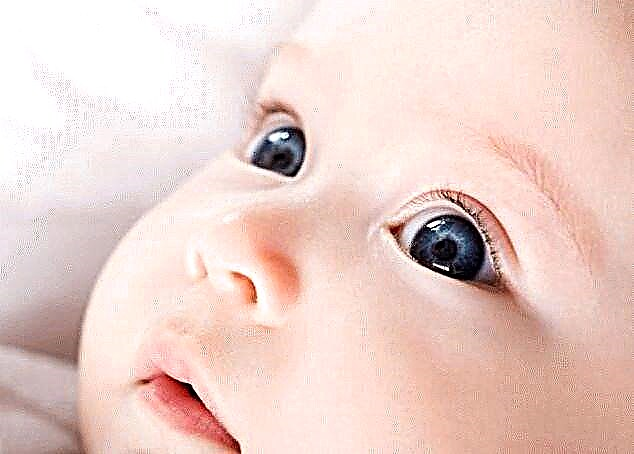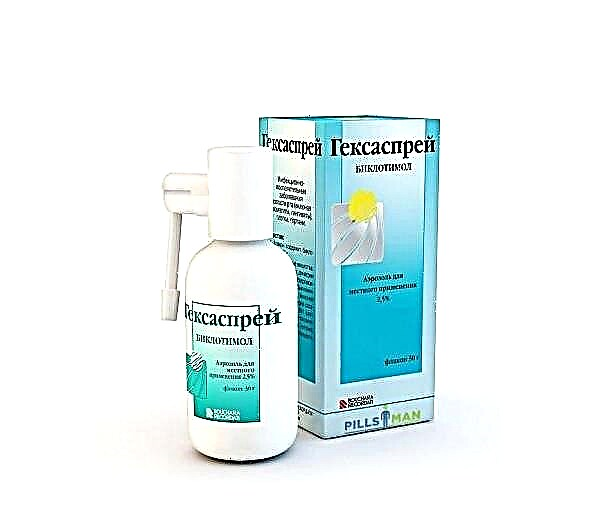
The macrolide group is considered one of the most popular and effective among modern antibacterial agents. A representative of this group of drugs is Macropen for children. If you are interested in when it is prescribed to children, as well as instructions for use, read this article.
Release form
Macropen is produced in two different forms:
- A bottle with granules from which a suspension is made. These granules have a small size, banana smell and orange color. After combining with water, they form an orange-colored liquid, which has a not very pungent banana smell. The bottle comes with a dosage spoon containing 5 ml of the drug.
- Tablets that have a shell. Their characteristics are round (slightly convex) shape and white color. One pack contains 16 tablets.


Composition
The main ingredient in "Macropen", due to which the drug acts on harmful bacteria, is midecamycin in the form of acetate. Its dosage in 5 ml of suspension is 175 mg, and in one tablet - 400 mg.
Additionally, the composition of the granules includes propyl and methyl parahydroxybenzoate, citric acid, yellow dye, mannitol, hypromellose, banana flavor and some other substances. In tablets, midecamycin is combined with talc, MCC, macrogol, potassium polacrilin and other components that create the core and shell of this form of the drug.
Operating principle
Midecamycin has the ability to inhibit the synthesis of protein molecules within microbial cells. This action is called bacteriostatic. If you use children's "Macropen" in a high dose, it will destroy harmful microorganisms (acting bactericidal). The drug is noted to be active against:
- chlamydia;
- mycoplasma;
- streptococci;
- neisseria;
- Helicobacter;
- whooping cough sticks;
- legionella;
- staphylococci;
- the causative agent of diphtheria;
- listeria;
- ureaplasma;
- campylobacter;
- moraxell;
- bacteroids.

Indications
The reason to prescribe the child "Macropen" may be an infectious disease that caused any of the microorganisms sensitive to such a drug. The medication is used:
- With pneumonia, otitis media, sore throat, sinusitis, bronchitis and other bacterial lesions of the respiratory system.
- With infections of the subcutaneous tissue or skin.
- When infected with mycoplasmas, chlamydia or other pathogens of the genitourinary system.
- For whooping cough and for its prevention.
- With enteritis provoked by campylobacter.
- For diphtheria and for its prevention.


From what age is it allowed to take?
The medication in granules is prescribed from birth, and the tablet form is prescribed for children over three years old. Macropen tablets are usually given to small patients weighing more than 30 kg. If the child is already 3 years old, but his weight has not yet reached 30 kg, it is more convenient for him to give a suspension, since it is easier to dose and swallow it.


Contraindications
"Macropen" is not given to children:
- With severe liver pathologies.
- With intolerance to midecamycin or any other ingredient of the medicine.
If the child has previously had an allergic reaction to acetylsalicylic acid, the use of the medication requires caution.
Side effects
Sometimes during treatment with Macropen, a small patient develops an allergy, as well as weakness or a negative reaction from the digestive tract. In addition, long-term therapy with such an antibacterial agent can provoke bacterial resistance, making the treatment ineffective.


If a child, after taking Macropen, has vomiting, as well as a feeling of heaviness in the abdomen, loose stools and other negative symptoms, you should consult a doctor and choose an equally effective medicine instead of this antibiotic. When prescribing the drug for a long period, it is important to monitor liver function.
The pharmacist also tells about the drug Macropen, about the active ingredients that make up it, the method of application, side effects and contraindications in this video.
Instructions for use and dosage
To make a suspension, 100 ml of boiled, not hot water is added to the bottle with granules. Shake the closed bottle well so that all the medicine is evenly dissolved. It is also advised to shake the medication before each use.
"Macropen" is given to the child before meals. With a body weight above 30 kg, the medication is prescribed 1 tablet (400 mg) - three times a day. For a child weighing up to 30 kg, the daily dose of the drug is calculated by multiplying the patient's body weight in kilograms by 20-40 (if the drug is prescribed three times) or by 50 (if two times a day is prescribed).

In the annotation to the granules, there is a scheme for taking the suspension, depending on the weight of the children.

- Weighing up to 5000 g children are given 3.75 ml at a time (half a measuring spoon and another 1/4).
- For a child weighing 5-10 kg a single dose is 7.5 ml (one and a half dosing spoons).
- For a patient who weighs 10-15 kg, at a time, 10 ml of suspension is required (2 measuring spoons).
- A child weighing 15-20 kg, the medication is given 15 ml per dose (this amount fits in three dosing spoons).
- For children weighing 20-30 kg a single dose of the medicine is 22.5 ml (four and a half spoons).
At this dosage, the suspension is taken twice a day. The duration of admission is determined by the doctor, but usually the course lasts 7-14 days. Prophylactic treatment against diphtheria lasts 1 week, and after contact with a patient with whooping cough, the medication is prescribed in a course of 7 to 14 days.


Overdose
If you accidentally give your child a higher dose of Macropen, it can cause nausea or vomiting. The manufacturer does not mention the toxic effect when the dosage of the drug is exceeded.
Interaction with other drugs
"Macropen" is often prescribed in combination with other medicines in order not only to influence the cause of the disease, but also to alleviate the symptoms. When coughing, the antibiotic is supplemented with expectorant drugs (for example, Lazolvan syrup), and for severe pains, antipyretic drugs (Ibuprofen and others) are prescribed. However, there are some medications that should not be given together with Macropen. They are noted in the instructions for such an antibiotic.
Terms of sale
To buy granules or tablets at a pharmacy, you first need to consult with your doctor and take a prescription from him.


The average price of Macropen in suspension is 300-350 rubles per bottle, and a package of tablets costs about 260-300 rubles.
Storage conditions and shelf life
To preserve the healing properties of "Macropen" you need to keep it at home in a dry place, at temperatures below 25 degrees Celsius. It is important to ensure that young children do not have access to such a place. The shelf life of both forms of the drug is 3 years. After mixing the granules with water, the suspension can be stored for no longer than 7 days at room temperature - and up to 14 days if you put the bottle in the refrigerator.
Reviews
There are usually good reviews about the treatment of children with Macropen, both from pediatricians and from parents. They confirm the high effectiveness of such an antibiotic for sinusitis, otitis media and other infections. One of the main advantages of mom's medicine is the presence of a liquid form. They say that giving the slurry to babies is easy, and the sweet banana taste does not cause any complaints for most children. As for the disadvantages, they include the side effects of the drug and the short shelf life of the prepared suspension.

Analogs
You can replace "Macropen" with one of the antibiotics of the same drug group. The following options are possible:
- Sumamed. The basis of this medication is azithromycin. The drug is released in suspension (it is given to children over 6 months old) and dispersible tablets (they can be given from the age of three).

- "Vilprafen Solutab". The action of such dissolving tablets is provided by josamycin. The medication is used to treat children weighing more than 10 kg.

- "AzitRus". This azithromycin-based medicine is available in portioned sachets containing the active ingredient in different doses (50, 100 or 200 mg). The drug is prescribed from 6 months of age.

- "Klacid". This suspension containing clarithromycin is used for children over six months of age. Tablet "Klacid" is prescribed from 3 years.




